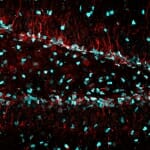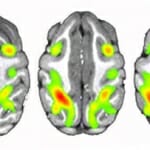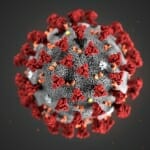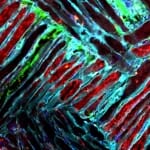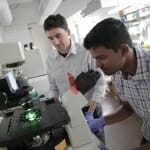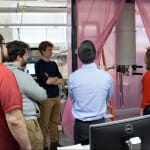Tag Research
This beetle got a boost when it partnered up with antifungal bacteria
In new research, scientists in the UW–Madison School of Pharmacy reveal the genetic history of this beetle-bacteria partnership. This kind of genetic detective work can help researchers decide where and how to look for new drugs. Read More
Newly identified cellular trash removal program helps create new neurons
New research by University of Wisconsin–Madison scientists reveals how a cellular filament helps neural stem cells clear damaged and clumped proteins, an important step in eventually producing new neurons. Read More
Cells carrying Parkinson’s mutation could lead to new model for studying disease
The edited cells are a step toward studying the degenerative neurological disorder in a primate model, which has proven elusive. Read More
Complex local conditions keep fields of dunes from going active all at once
New research on dunes in China describes how even neighboring dunes can long remain in different and seemingly conflicting states — confounding the assessment of stabilization efforts and masking the effects of climate change. Read More
Sen. Tammy Baldwin wins ‘Champion of Science’ award with nomination from UW–Madison, Marquette
The award honors members of Congress whose actions and votes consistently reflect their commitment to fundamental science through funding investment for federal research agencies. Read More
Crystal-stacking process can produce new materials for high-tech devices
To grow layers of single-crystal oxides for electronic components requires neighboring layers to interlock like Lego blocks. A new method throws out that limitation, producing new capabilities for data storage, sensing, energy technologies, biomedical devices and many other applications. Read More
Warming oceans could cause Antarctic Ice Sheet collapse, sea level rise
A new study found that warming below the surface of the planet’s oceans is a significant contributor to ice sheet melt, particularly in the Antarctic, where a large portion of the ice sheet exists under the water. Read More
Enter your best science images in the 2020 Cool Science Image Contest
As students, staff and faculty sift and winnow they produce a continual stream of visual documentation of their discoveries. The 10th annual Cooll Science Image Contest is soliciting the best visuals from members of the UW–Madison community. Read More
Potential predation prevention: Remind cattle they are herd animals
An experiment will test the back-to-the-future principle that cattle will find safety by returning to their roots as herd animals, says graduate student Naomi Louchouarn, who began the experiment last spring. Read More
Discovery sheds new light on how cells move
“If we can understand the key factors causing cell migration, then we could perhaps develop new treatments to speed up wound healing,” says Jacob Notbohm, an assistant professor of engineering physics at the University of Wisconsin–Madison. Read More
First cohort of students dives into new physics-quantum computing master’s degree
UW–Madison’s inaugural MS in Physics – Quantum Computing, which addresses a workforce need as the first program of its kind in the U.S., will prime students to enter this rapidly growing field. Read More
Access to Medicare increases cancer detection, reduces cancer mortality rate
Access to Medicare significantly affects detection of certain cancers and life expectancy following cancer diagnosis, according to a new study from the UW School of Medicine and Public Health. Read More
Compassion training for parents may reduce their children’s stress
“It is critical to include parents of infants and very young children in this research because preventing stress-related difficulties in children is a more effective approach than intervening after problems develop.” Read More
Inflammation predicts response to anti-depression medication
Children and teens with bipolar depression responded better to the drug if they had increased markers of inflammation in their blood, a new UW–Madison study shows. Read More
Mindfulness video game changes areas of the brain associated with attention
The game was designed for middle schoolers and requires them to count their breaths by tapping a touch screen to advance through relaxing landscapes such as ancient Greek ruins and outer space. Read More


